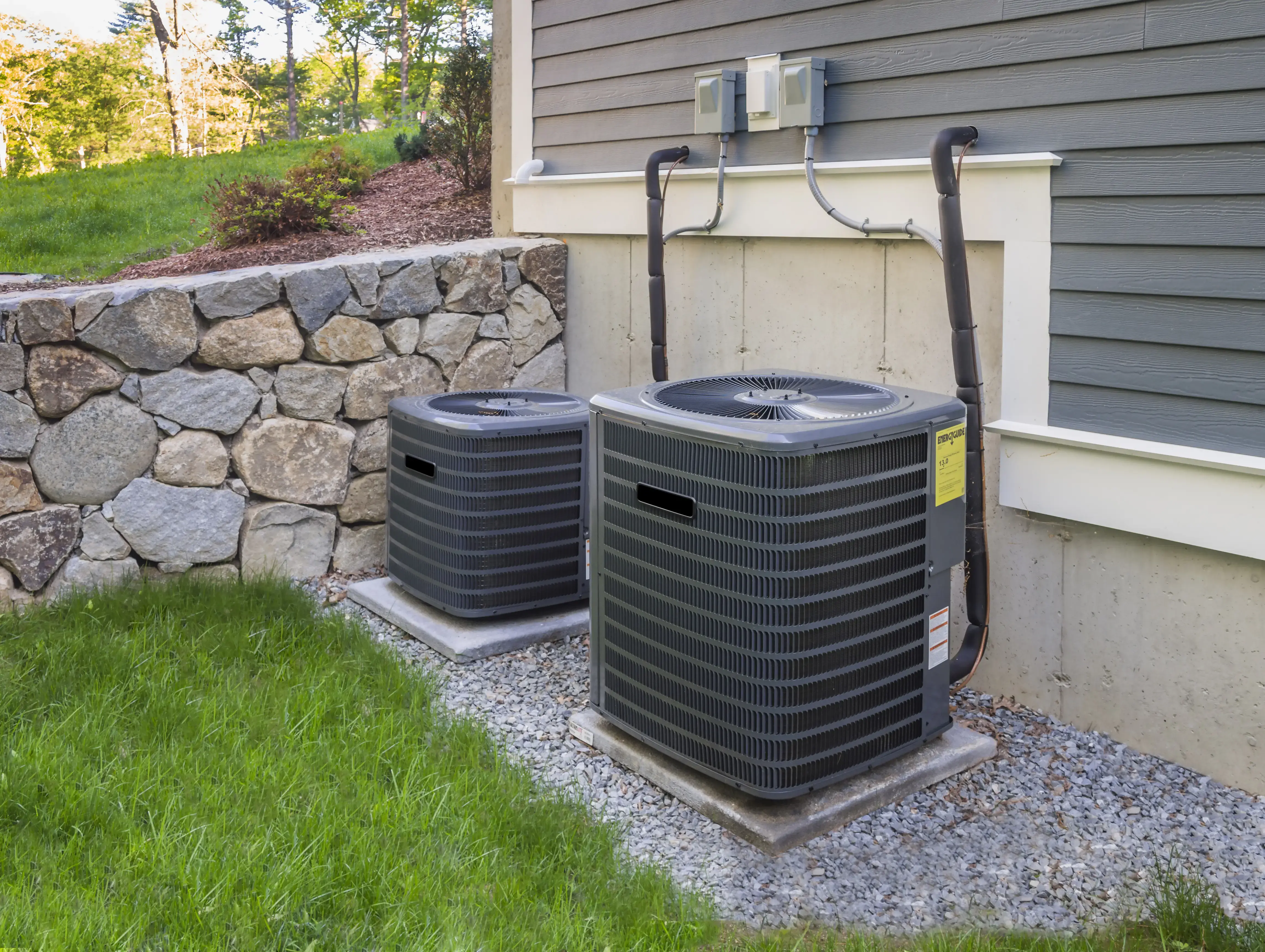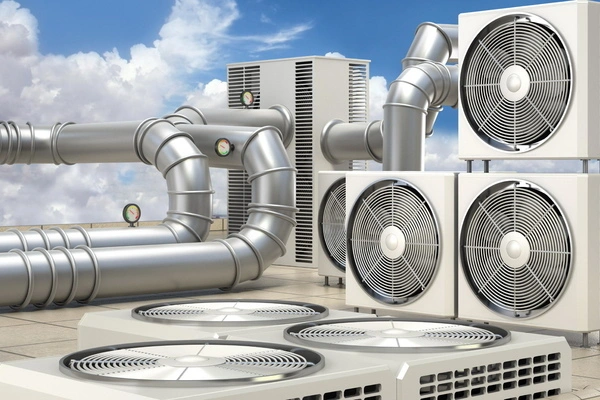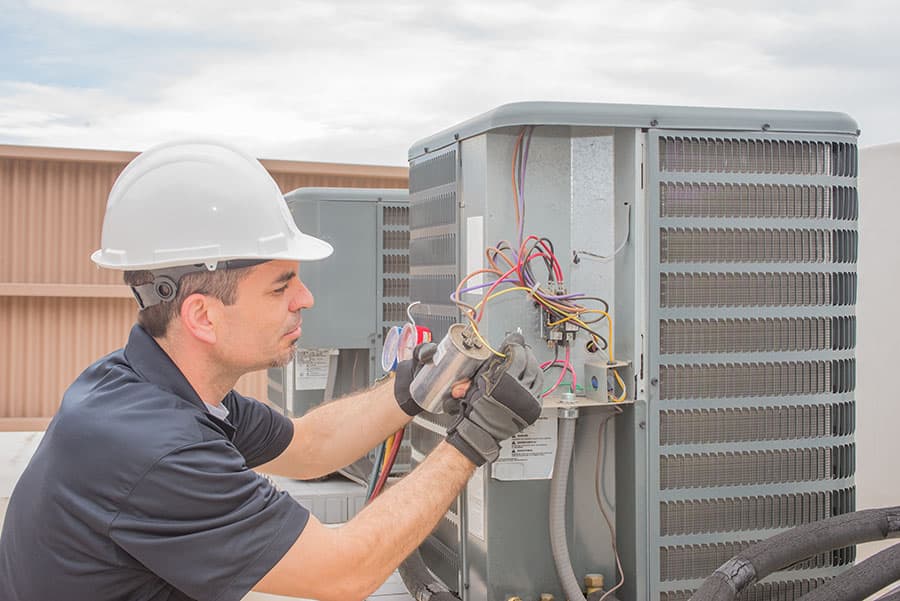Find out how HVAC experts maximize longevity of your home system
Wiki Article
Checking Out the Crucial Parts of a Reliable HVAC System
An effective cooling and heating system is improved numerous crucial components that operate in consistency. Each part, from the thermostat to the ductwork, plays an important duty in keeping comfort and energy effectiveness. Recognizing these components is crucial for optimizing performance and improving interior air high quality. As one checks out these elements, the complex partnerships in between them disclose insights into improving total system effectiveness. What specific variables add most to this performance?The Function of the Thermostat in Cooling And Heating Effectiveness

Typically forgotten, the thermostat plays a critical function in the effectiveness of Heating and cooling systems. This little device functions as the key nerve center, regulating temperature level setups and ensuring optimal comfort within a space. By accurately sensing the ambient temperature, the thermostat connects with the ventilation, air, and home heating conditioning systems to preserve the preferred climate
A reliable thermostat minimizes energy consumption by activating the a/c system only when essential, therefore preventing too much home heating or cooling. Modern programmable and clever thermostats improve this efficiency additionally by enabling users to establish schedules and remotely readjust setups, adapting to daily regimens.
Additionally, the placement of the thermostat is important; inappropriate location can bring about unreliable temperature level readings, leading to inefficient operation. Generally, a well-functioning thermostat not just boosts convenience however likewise adds significantly to energy financial savings and the longevity of the cooling and heating system.
Comprehending the Value of Air Filters
Air filters offer a crucial function in cooling and heating systems by assuring that the air circulating within an area stays clean and healthy. These filters trap dust, allergens, and various other pollutants, avoiding them from being recirculated throughout the atmosphere. By catching these fragments, air filters add to boosted indoor air top quality, which can greatly profit occupants' health, especially those with allergic reactions or respiratory system conditions.Additionally, maintaining tidy air filters boosts the effectiveness of cooling and heating systems. Blocked filters can restrict air flow, causing the system to work more difficult to preserve desired temperature levels, causing raised energy usage and higher utility expenses. On a regular basis replacing or cleaning up filters is an important upkeep action that can prolong the lifespan of heating and cooling devices. Eventually, recognizing the relevance of air filters permits home owners and building managers to take positive actions to ensure a well-functioning, reliable cooling and heating system that advertises a secure and comfortable interior atmosphere.

The Capability of the Heating System and Warmth Pump
Heaters and warmth pumps are essential elements of a/c systems, liable for giving warmth during colder months. Heating systems operate by home heating air with burning or electrical resistance, then dispersing it throughout the home by means of ducts. They usually offer quick heating and can be fueled by natural gas, electrical power, or oil, depending on the system kind.On the other hand, warm pumps transfer warmth as opposed to generate it. They draw out warm from the outdoors air or ground, also in low temperatures, and move it inside your home. HVAC experts. This double functionality allows heat pumps to likewise offer cooling in warmer months, making them flexible alternatives for year-round climate control
Both systems require correct upkeep to ensure performance and long life. While furnaces stand out in severe chilly, heatpump can be advantageous in modest climates. Understanding their unique performances help property owners in choosing the most appropriate option for their heating requires.
Discovering the Cooling Unit
The air conditioning device is a crucial element of heating and cooling systems, available in different kinds to match various requirements. Recognizing the efficiency scores of these units is important for making notified selections concerning energy usage and expense. This section will certainly explore the diverse sorts of a/c and clarify exactly how performance ratings effect efficiency.Types of Air Conditioners
While numerous variables affect the selection of cooling systems, comprehending the various kinds readily available is crucial for homeowners and structure supervisors alike. Central air conditioners are created to cool entire homes or structures, utilizing a network of air ducts for air movement. Window devices supply an even more localized service, ideal for small rooms or solitary rooms. Portable air conditioning system provide versatility, permitting customers to relocate the system as required. Ductless mini-split systems are another choice, incorporating the efficiency of main systems with the comfort of zoning, as they require no ductwork. Geothermal systems harness the planet's temperature for energy-efficient cooling. Each type includes distinct benefits, making informed selections vital for efficient climate control.
Efficiency Ratings Discussed
Comprehending efficiency ratings is important for choosing the right a/c unit, as these metrics provide understanding right into the system's efficiency and energy intake. One of the most usual score for ac unit is the Seasonal Power Performance Proportion (SEER), which determines the cooling output throughout a common cooling period divided by the complete electric power input. A greater SEER indicates far better efficiency. Additionally, the Power Effectiveness Ratio (EER) is used for gauging efficiency under details problems. One more important metric is the Energy Star certification, which signifies that a device satisfies stringent power effectiveness guidelines. By evaluating these scores, customers can make enlightened here are the findings options that not just optimize comfort however likewise decrease power costs and ecological effect.The Importance of Ductwork and Air flow
Reliable ductwork design and air flow management play crucial functions in the total efficiency and efficiency of HVAC systems. Proper ductwork warranties that conditioned air is distributed equally throughout an area, decreasing temperature level fluctuations and boosting convenience. Well-designed ducts minimize resistance to air flow, minimizing the work on cooling and heating devices and eventually decreasing energy intake.Air flow management involves purposefully positioning vents and signs up to boost the circulation of air. This prevents usual concerns such as warm or chilly places, which can take place when air movement is blocked or inadequately well balanced. Furthermore, the best duct products and insulation can better enhance efficiency by decreasing warm loss or gain throughout air transit.
An efficient ductwork system not only adds to power cost savings yet can likewise extend the life-span of a/c tools by reducing unneeded stress (HVAC experts). Recognizing the value of ductwork and air movement is important for achieving peak Cooling and heating system efficiency.
Normal Maintenance Practices to Improve Efficiency
Routine maintenance techniques are important for making sure peak performance of heating and cooling systems. These techniques include routine evaluations, cleaning, and essential repairs to keep the system running effectively. Frequently transforming air filters is crucial, as clogged filters can block air movement and minimize efficiency. Additionally, service technicians should inspect and tidy evaporator and condenser coils to avoid overheating and power wastage.Yearly professional assessments are likewise advised, as qualified technicians can determine possible issues prior to they rise. Lubricating relocating parts lessens wear and tear, adding to a longer life expectancy for the system. Furthermore, ensuring that the thermostat works appropriately help in maintaining suitable dig this temperature control.

Regularly Asked Inquiries
Exactly how Commonly Should I Change My Thermostat?
Thermostats must generally be replaced every 5 to ten years, relying on use and innovation advancements. Routine checks are suggested to guarantee peak performance, especially if experiencing irregular temperature level control or increased power expenses.What Size Air Filter Is Best for My HVAC System?
The best size air filter for a HVAC system differs by unit style. Usually, it's essential to get in touch with the owner's handbook or inspect the existing filter measurements to assure peak performance and air top quality.Can I Install a Heat Pump Myself?
Setting up a heat pump individually is feasible for competent individuals, however it requires understanding of local codes and electrical systems. website link Working with an expert is advised to assure correct installation and suitable system performance.Just how Do I Know if My Ductwork Is Reliable?
To determine ductwork performance, one need to look for leaks, action air movement at vents, inspect insulation top quality, and review temperature level differences between supply and return air ducts. Expert evaluations can offer detailed understandings right into overall efficiency.What Are Indicators My A/c Requirements Immediate Upkeep?
Indications that a heating and cooling system requires instant maintenance include uncommon noises, inconsistent temperatures, boosted energy costs, unpleasant smells, and constant cycling. Addressing these problems quickly can avoid more damages and guarantee optimal system performance.Air filters offer a crucial function in Cooling and heating systems by assuring that the air distributing within a space continues to be clean and healthy and balanced. In addition, keeping tidy air filters enhances the efficiency of Cooling and heating systems. Ductless mini-split systems are an additional option, incorporating the efficiency of central systems with the benefit of zoning, as they call for no ductwork. Understanding performance ratings is necessary for picking the appropriate air conditioning unit, as these metrics give insight right into the system's efficiency and energy intake. The ideal size air filter for a Heating and cooling system differs by device style.
Report this wiki page